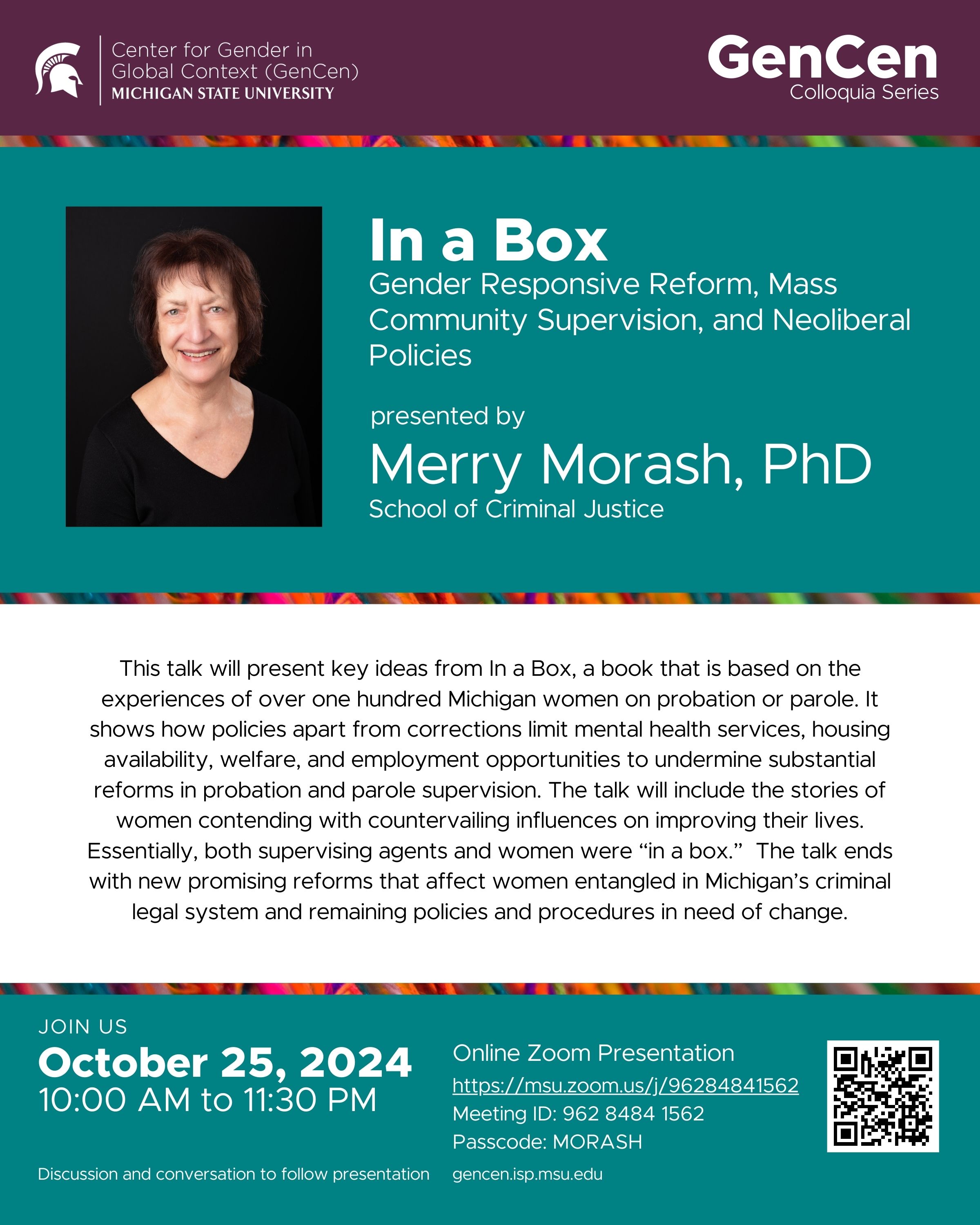Events
 Back to Events
Back to Events
- Date:
- Friday, 25 Oct 2024
- Time:
- 10:00 a.m. to 11:30 a.m.
- Location:
- https://msu.zoom.us/j/96284841562
- Department:
- Center for Gender in Global Context
Join us virtually as Merry Morash presents
"In a Box: Gender Responsive Reform, Mass Community Supervision, and Neoliberal Policies"

Date: October 25, 2024 - 10:00 a.m. to 11:30 p.m.
Location: Online Zoom Presentation
https://msu.zoom.us/j/96284841562
Meeting ID: 962 8484 1562
Passcode: MORASH
This talk will present key ideas from In a Box, a book that is based on the experiences of over one hundred Michigan women on probation or parole. It shows how policies apart from corrections limit mental health services, housing availability, welfare, and employment opportunities to undermine substantial reforms in probation and parole supervision. The talk will include the stories of women contending with countervailing influences on improving their lives. Essentially, both supervising agents and women were "in a box." The talk ends with new promising reforms that affect women entangled in Michigan's criminal legal system and remaining policies and procedures in need of change.
Abstract of the book:
In a Box draws on the experiences of over one hundred Michigan women on probation or parole to analyze how remnants of old-style supervision and policies that structure mental health services, housing availability, welfare, and employment opportunities hampered the state's efforts at gender-responsive reforms in community supervision. The book narrates the stories of women and reveals how countervailing influences kept reform-oriented probation and parole agents and women they supervise "in a box," limited in their abilities to break away from the punitive framework that has become common in the US criminal legal system. The book concludes with recommendations for truly effective reforms, inspired by the interviewees' reflections on their own experiences.
Biography:
Merry Morash is Professor in Criminal Justice and University Distinguished Professor at Michigan State University. Her research on women has been supported by four NSF grants, two grants from the National Institute of Justice, and a grant from the Michigan State University Foundation. Her focus has been on women as victims and as individuals who have been processed into the criminal legal system. She has been affiliated with GenCen since its establishment, and before that with the Women's Studies program at Michigan State University. She received the Mentoring Award and is a Fellow at the American Society of Criminology, as well as the Lifetime Achievement Awards from that society's Division on Women and Crime and Division on People of Color and Crime.
Discussion and conversation to follow presentation.



